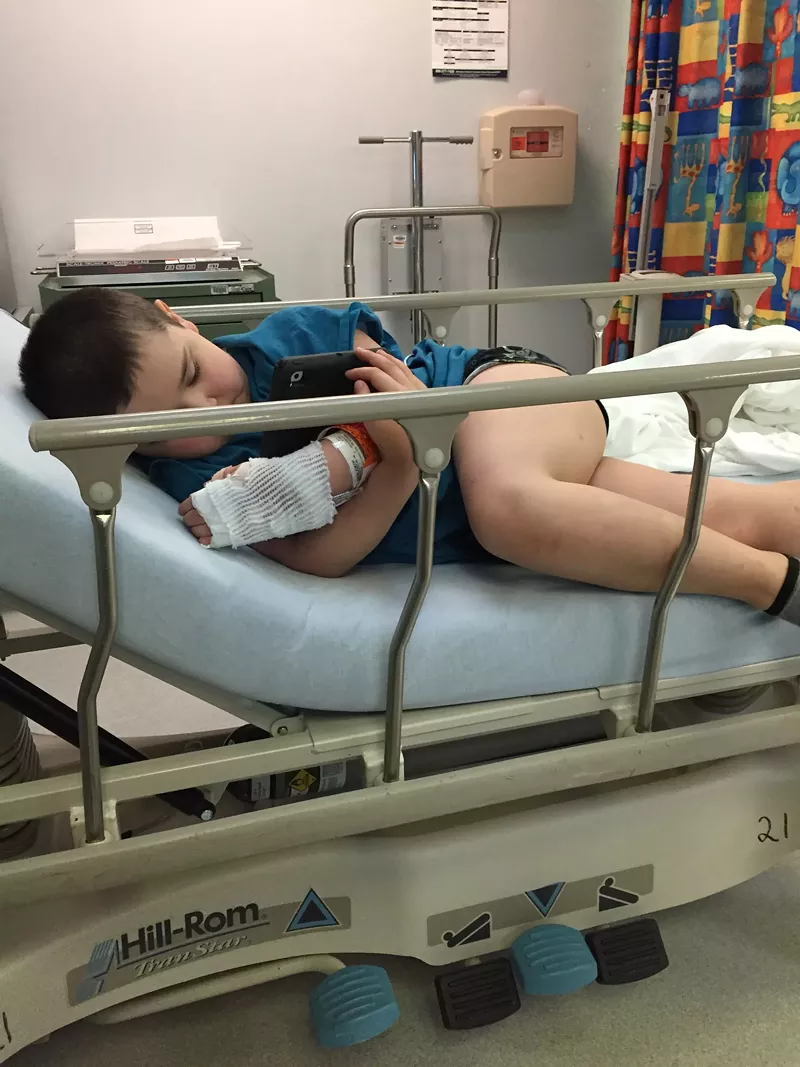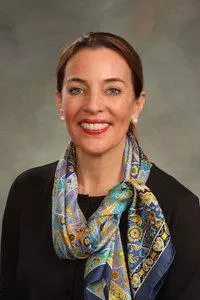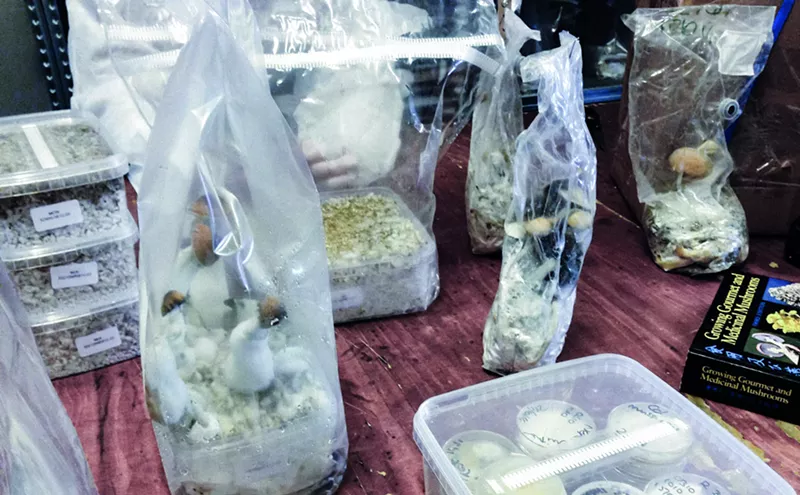Advocates pushing to include autism spectrum disorder in Colorado's list of conditions that qualify for medical marijuana took a small but victorious step forward last night, April 5. But those who supported adding acute pain to the list weren't as successful.
After more than five hours of public testimony and deliberation, a House committee voted in favor of a bill that would add ASD to the state's list of conditions treatable by medical marijuana. Introduced by Representative Edie Hooton, HB 1263 will now go in front of the entire House for consideration. Hooton was undoubtedly pleased for the families of autistic children who'd approached her in hopes of including ASD in her initial proposal, but the lawmaker couldn't help but feel conflicted at the end of the day.
Hooton had originally written the bill to address Colorado's opioid epidemic, hoping that qualifying acute pain (pain that lasts anywhere from ninety days to six months) for medical marijuana would give doctors an alternative to opioid pain medication when treating patients recovering from surgeries and other procedures. "The majority of the testimony here today was for autism, but the original inspiration I had was to give physicians an alternative," Hooton said during the House Health, Insurance, & Environment Committee hearing.
Unfortunately for those hoping to see acute pain added to the list, a narrow majority of Hooton's colleagues weren't comfortable with that proposal and said they wouldn't vote for the bill unless an amendment passed removing acute pain but keeping ASD. Faced with the choice of picking one or none, Hooton relented. With only ASD remaining on the bill, it passed 12-1.
"Medical marijuana is a viable option for these children," Representative Jovan Melton, a co-sponsor of the bill, said during the hearing. "That's really what we're trying to get — is creating additional options in a state where we're lucky enough to have medical marijuana at our disposal."
The autism portion of the bill passed despite opposition from child psychiatrists with the Colorado Child and Adolescent Psychiatric Society, Colorado Psychiatric Society and Children's Hospital Colorado, as well as Colorado Department of Public Health and Environment chief medical officer Dr. Larry Wolk. Most of their objections were tied to the lack of clinical research around the subject. Wolk also said that using the state legislature to make autism treatable with cannabis circumvented the CDPHE petitioning process already in place to add medical marijuana conditions.
"Given what we do know about marijuana, it could actually be detrimental" because of its interactions with other pharmaceuticals that ASD patients are already taking, Wolk told lawmakers during the hearing. "There are no published randomized clinical trials or observational studies on pot and autism."
However, Hooton quickly pointed out that the CDPHE hasn't added a single condition to the medical marijuana list since it was created in 2002, with the only addition (post-traumatic stress disorder) included because of a legislative effort that bypassed the CDPHE in 2017. She also cited studies on the subject done in other countries, such as Israel and Chile.
House committee members seemed swayed by the testimony from nearly twenty families and advocates who testified in favor of the ASD portion of the bill. Mothers of autistic children, such as Michelle Walker, Jackie Bess and a handful of others, told how whole-plant cannabis oil helped their children swiftly curb their aggressive behavior and cognitive disabilities. Walker, a communications director for Mothers Advocating Medical Marijuana for Autism and the mother of a ten-year-old boy with ASD, had shared her family's story with Westword earlier. While her son, Vincent, has access to medical marijuana because he also suffers from epilepsy, around 70 percent of people with ASD do not, which prohibits them from accessing medical marijuana.
"Vincent has access, but there are so many families that do not," Walker told the committee. "There are families trapped in their homes. ... Their kids are hurting themselves, and they're hurting us."
Bess, a member of developmental disability nonprofit ARC of Aurora, has two sons with autism. Jackson, her ten-year-old, suffers from muscle spasms, a condition that qualifies for medical marijuana. Gavin, a six-year-old with ASD, doesn't. "All of the prescribed medications caused side effects — nightmares, hallucinations, panic attacks, aggressive behaviors," Bess said during the hearing. "This decision was not made lightly. We tried CBD first, [and] it made [Jackson's] aggression worse. Since starting medical marijuana, it's been rare for us to get a call" from school about her son.
If passed, the bill would allow adults as well as children under eighteen with ASD to be eligible for medical marijuana. To be approved, the child must have a recommendation from two different physicians, and one of them must have an established relationship with the child.
Colorado wouldn't be the first state to add ASD to its list of conditions treatable with medical marijuana. In California, Delaware, Florida, Georgia, Minnesota and Pennsylvania, patients with ASD are eligible for medical marijuana programs, while doctors in Oregon, Massachusetts and Washington, D.C., can recommend medical marijuana for patients with ASD.

Audio By Carbonatix
[
{
"name": "GPT - Billboard - Slot Inline - Content - Labeled - No Desktop",
"component": "23668565",
"insertPoint": "2",
"requiredCountToDisplay": "2"
},{
"name": "STN Player - Float - Mobile Only ",
"component": "23853568",
"insertPoint": "2",
"requiredCountToDisplay": "2"
},{
"name": "Editor Picks",
"component": "17242653",
"insertPoint": "4",
"requiredCountToDisplay": "1"
},{
"name": "Inline Links",
"component": "18838239",
"insertPoint": "8th",
"startingPoint": 8,
"requiredCountToDisplay": "7",
"maxInsertions": 25
},{
"name": "GPT - 2x Rectangles Desktop, Tower on Mobile - Labeled",
"component": "24956856",
"insertPoint": "8th",
"startingPoint": 8,
"requiredCountToDisplay": "7",
"maxInsertions": 25
},{
"name": "Inline Links",
"component": "18838239",
"insertPoint": "8th",
"startingPoint": 12,
"requiredCountToDisplay": "11",
"maxInsertions": 25
},{
"name": "GPT - Leaderboard to Tower - Slot Auto-select - Labeled",
"component": "17676724",
"insertPoint": "8th",
"startingPoint": 12,
"requiredCountToDisplay": "11",
"maxInsertions": 25
}
]













